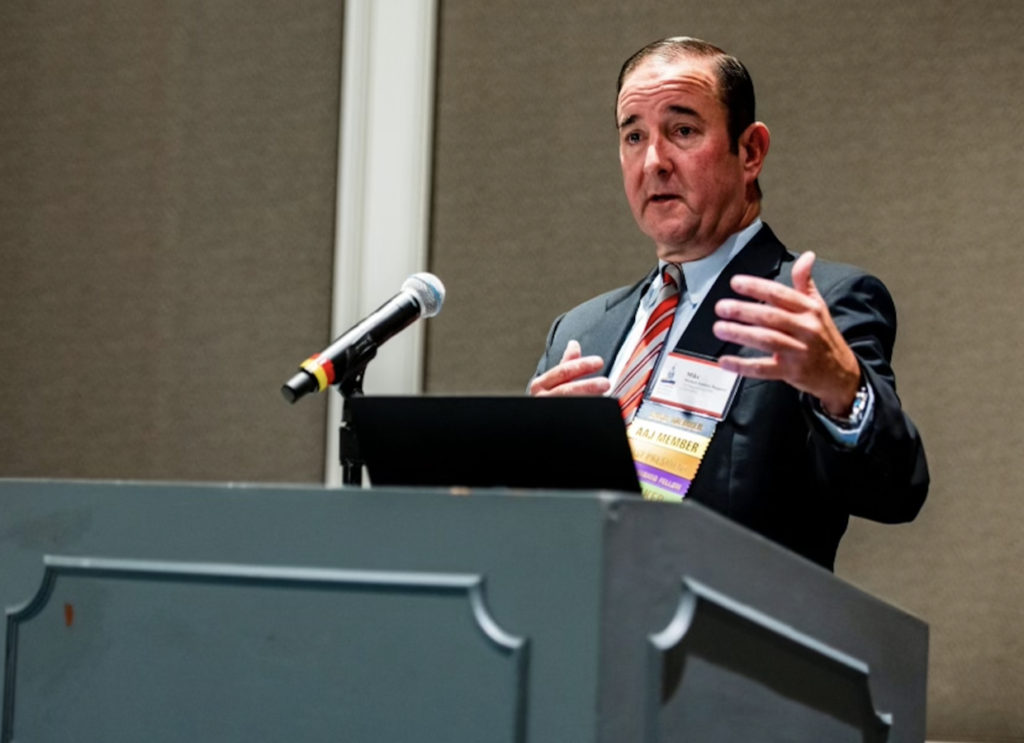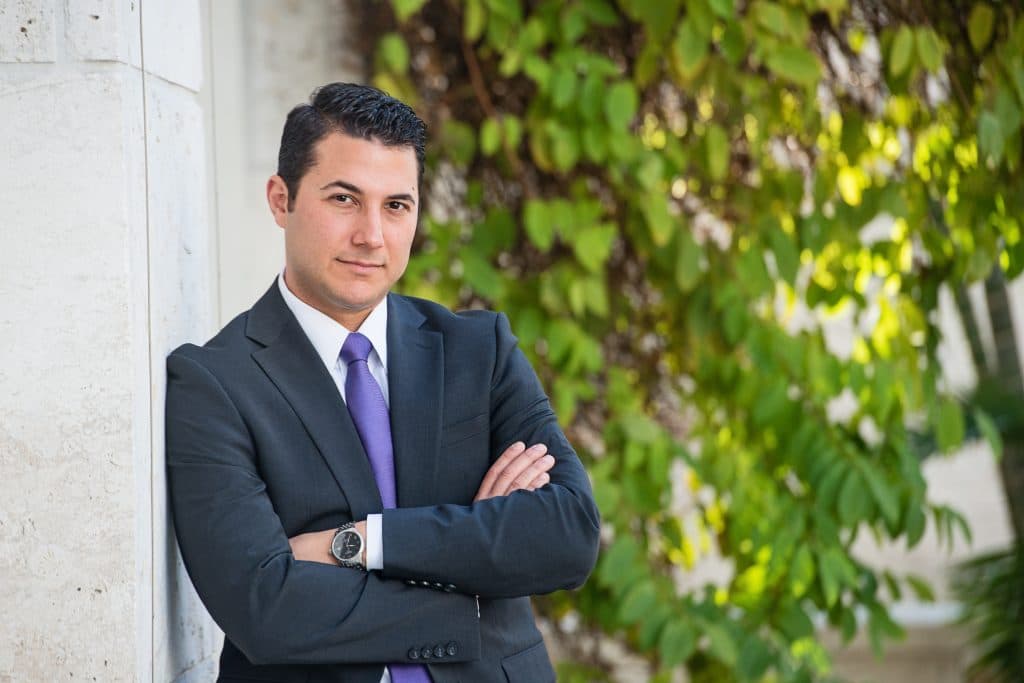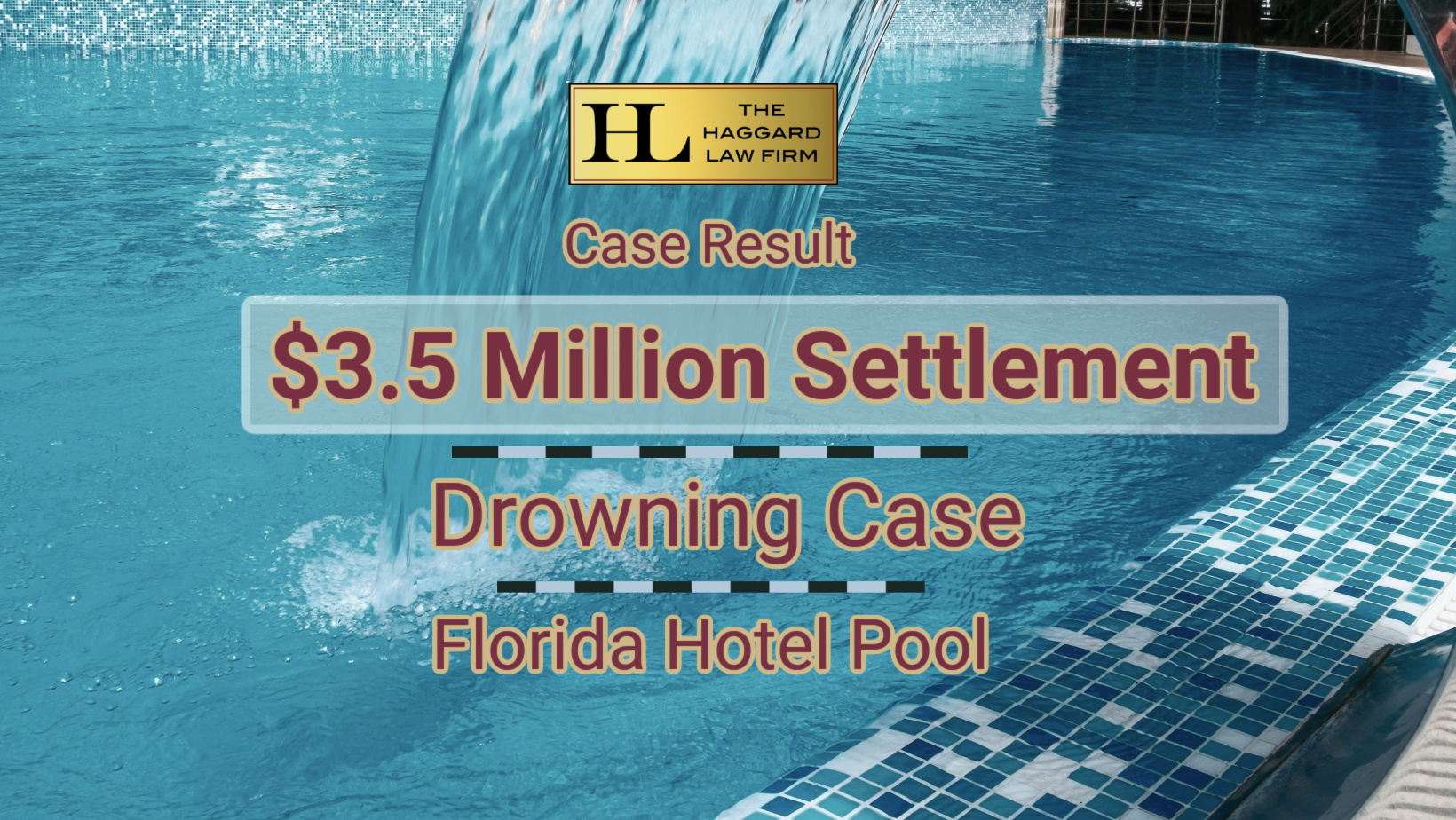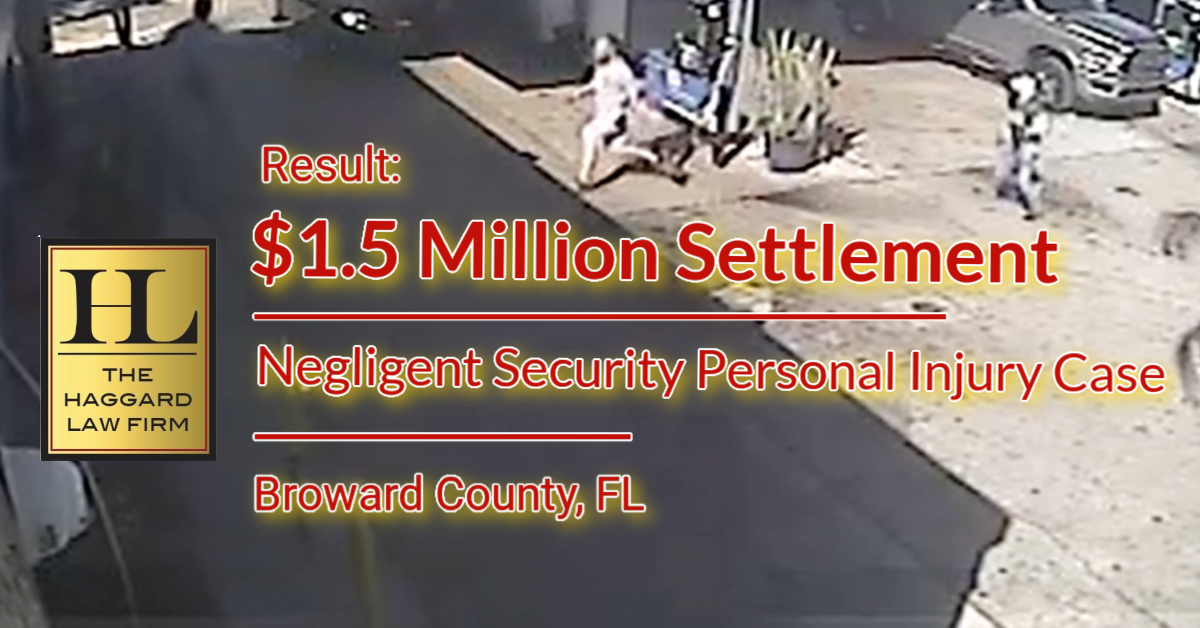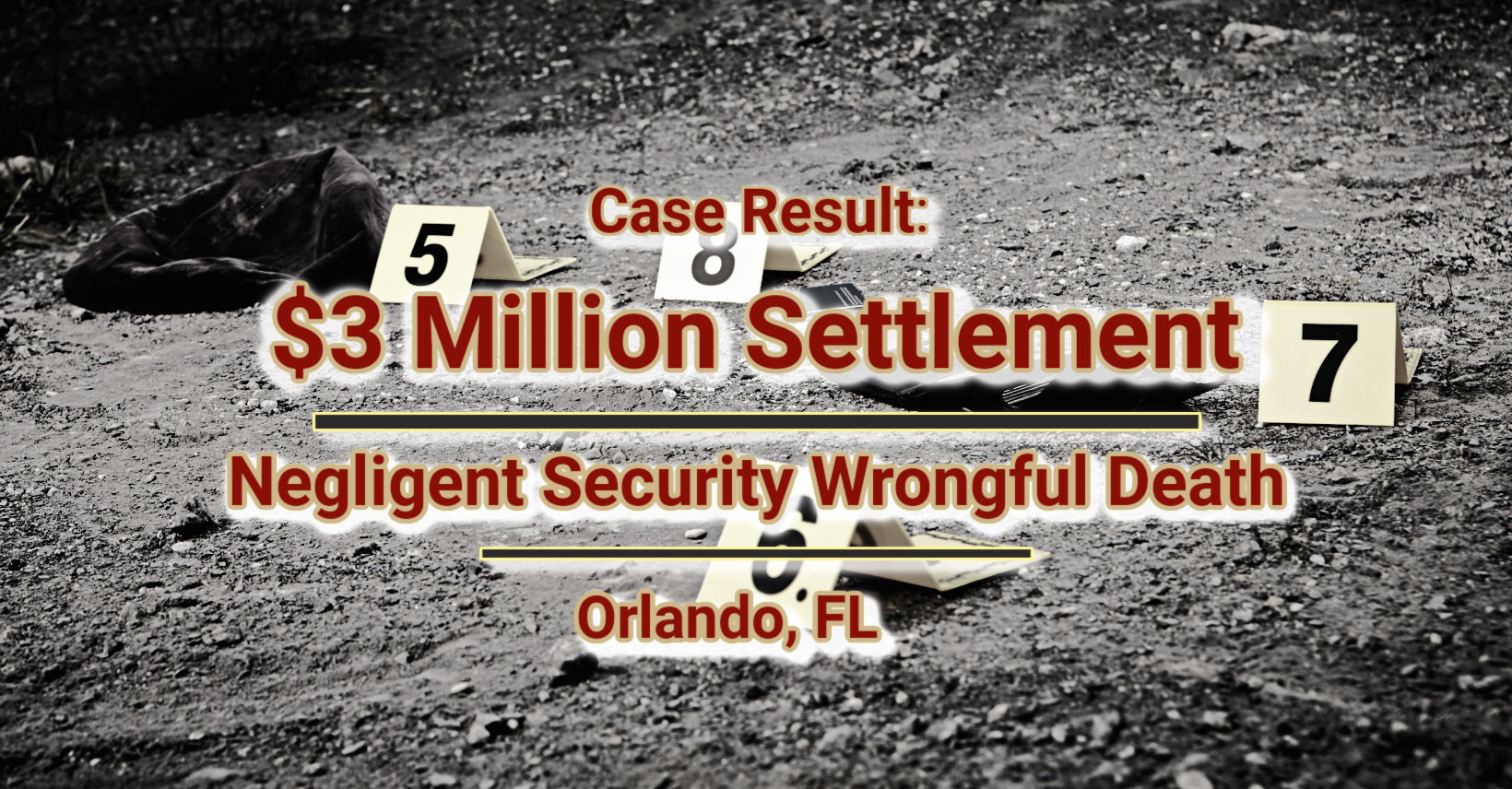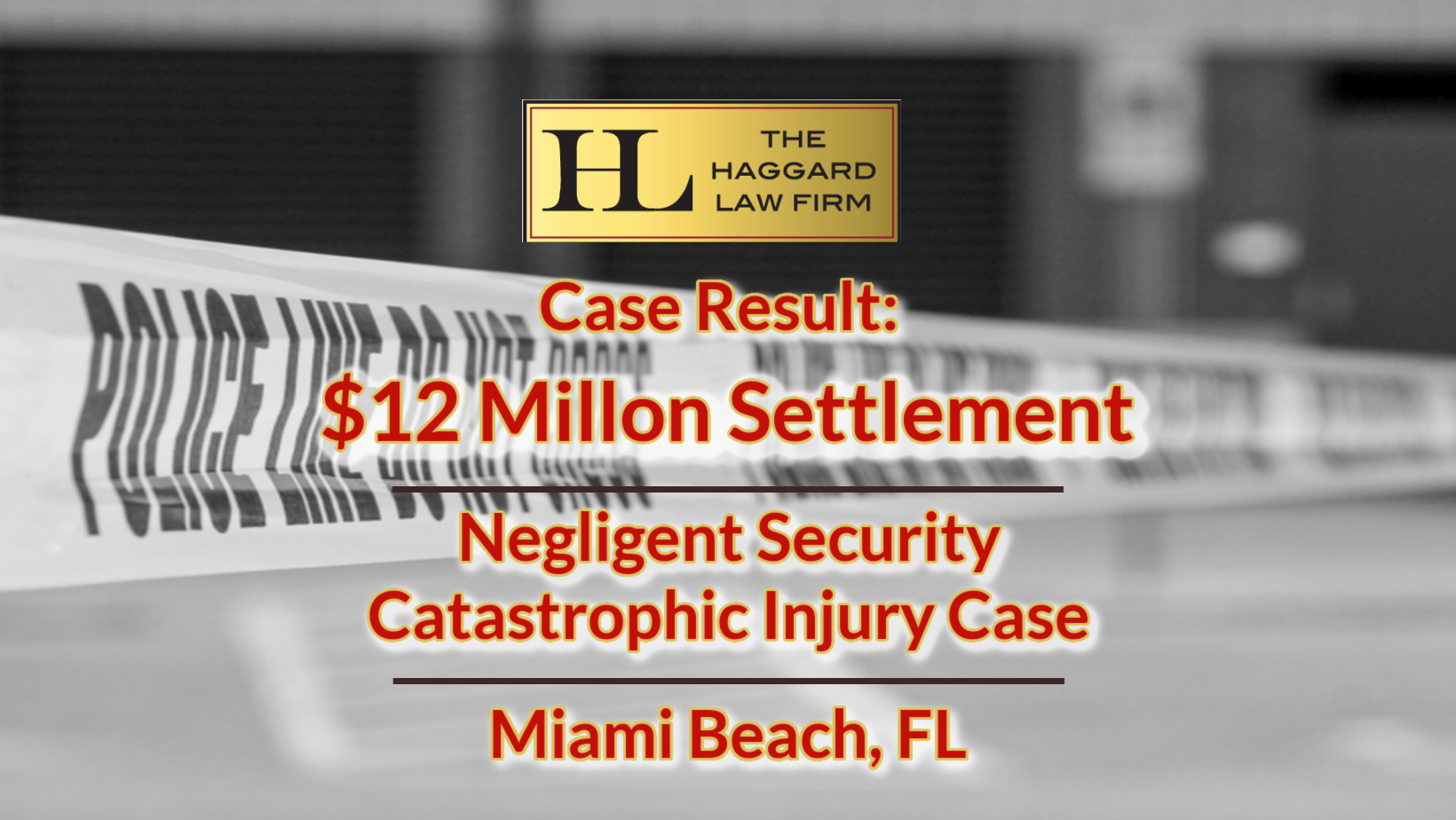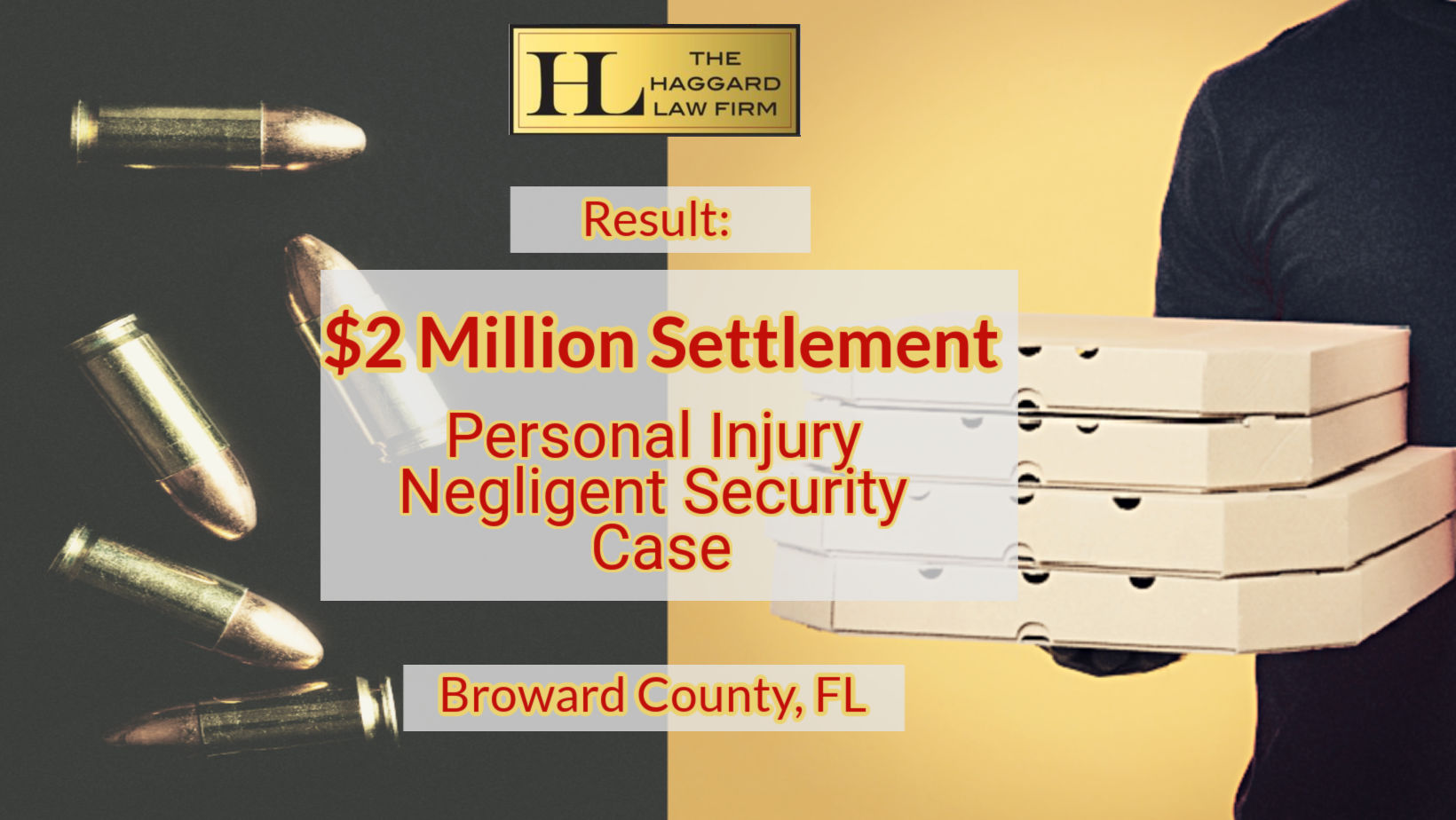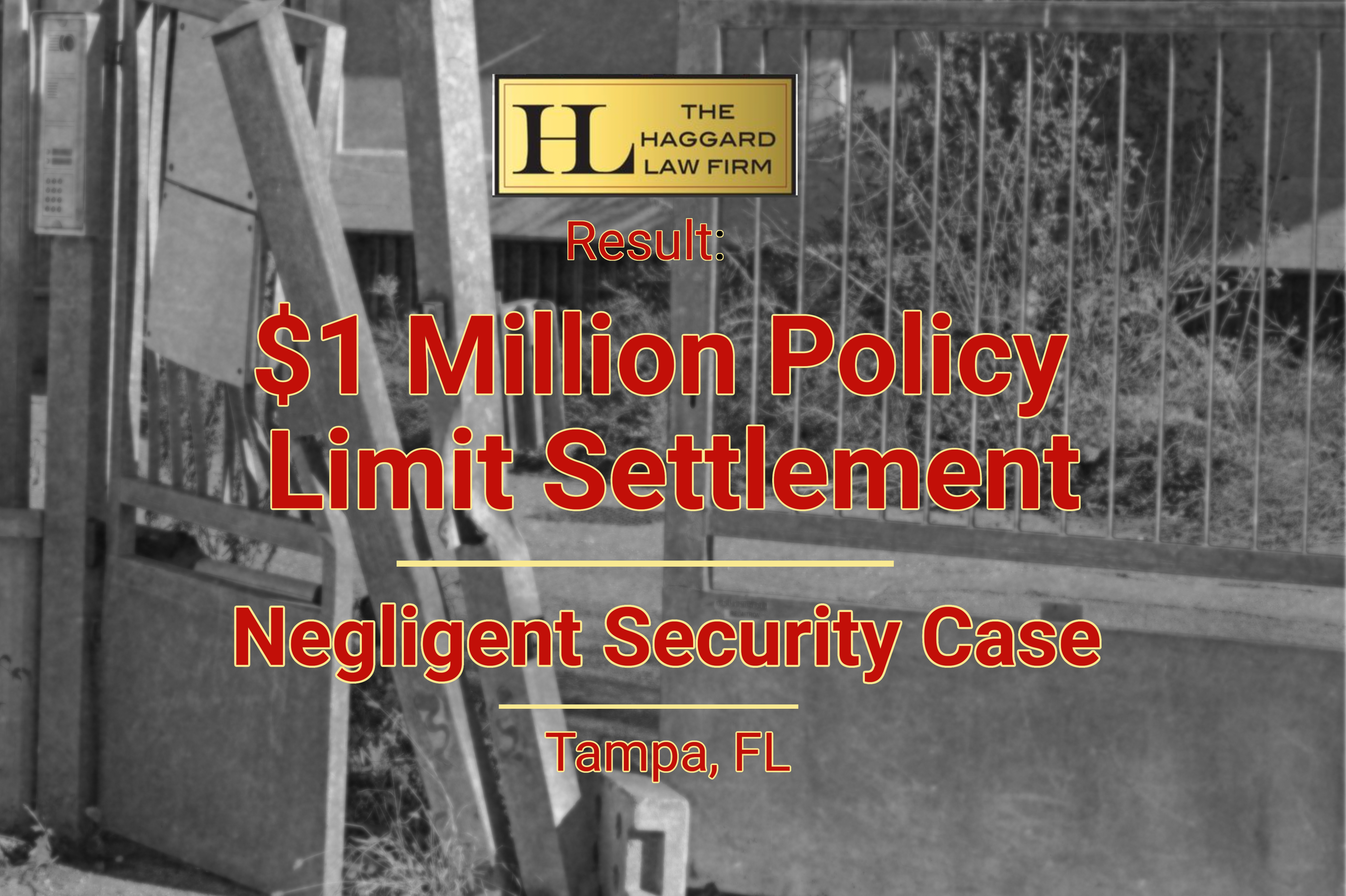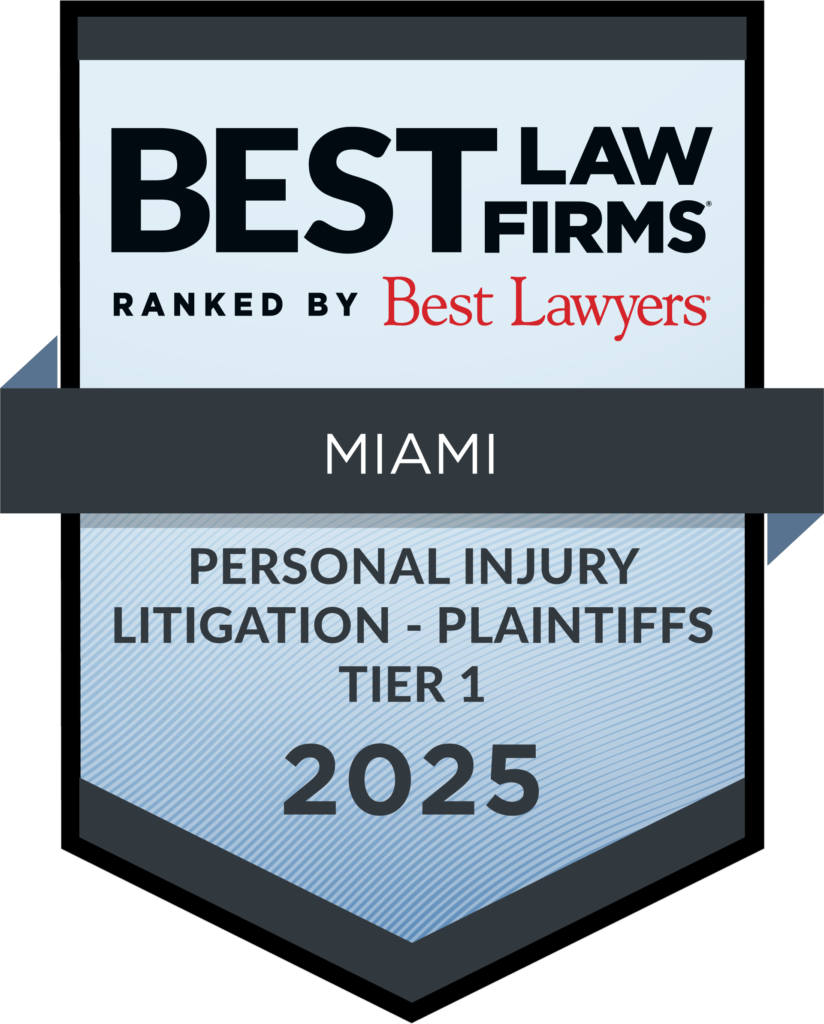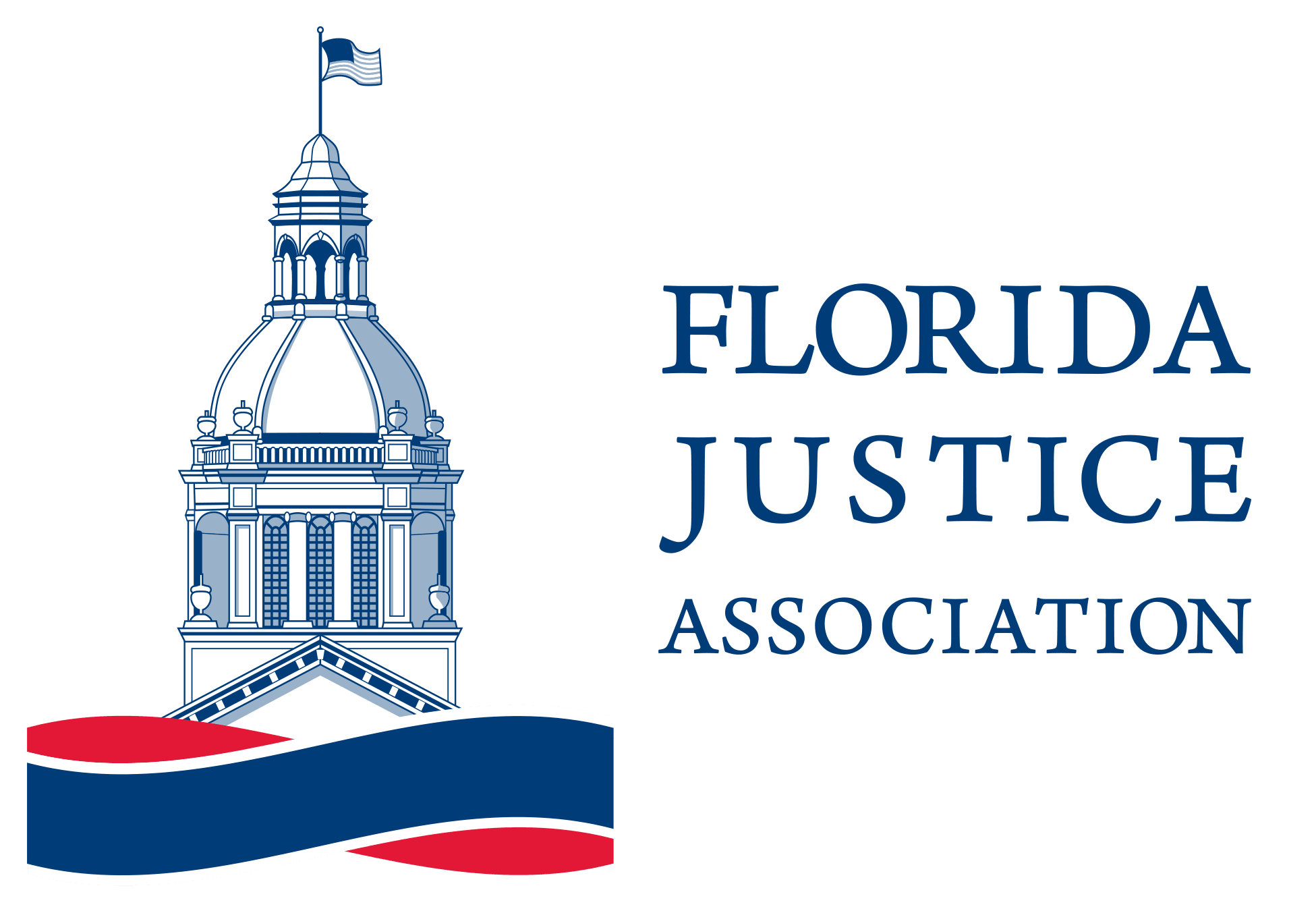The Haggard Law Firm’s Douglas McCarron has obtained a $3.5 Million settlement involving a drowning at a Florida hotel.
Continue reading “$3.5 Million Settlement in Hotel Pool Drowning Case”Tag: Florida Trial Attorney
$1.5 Million Settlement in Gas Station Negligent Security Case – The Haggard Law Firm
The Haggard Law Firm’s Joshua Padron and Todd Michaels have secured a $1.5 Million settlement in a negligent security personal injury case involving a gas station shooting.
Continue reading “$1.5 Million Settlement in Gas Station Negligent Security Case – The Haggard Law Firm”$3 Million Negligent Security Wrongful Death Settlement in Case Involving Apartment Complex Shooting
The Haggard Law Firm’s Pedro Echarte has obtained a $3 Million settlement for the family of a 15-year-old boy murdered at an Orlando apartment complex with a history of crime.
On July 1, 2018, “W.I.”, a 15-year-old boy, was shot and killed at the Boca Club Apartments in Orlando, FL. At the time of the incident the teenager lived at the apartment complex with his father. “W.I.” left behind his devastated parents who were the survivors of his claim.
The Haggard Law Firm brought this action against the apartment complex for failing to have needed security measures to protect residents and guests. Echarte was able to show that the apartment complex had a long history of both violent and non-violent crime. Despite this history of crime, the apartment complex never warned its residents of the crime occurring within the community or invested in the security that could have prevented this and other tragedies.
As a result, neither the 15-year-old or his family knew the extent of the crime in the community or the full extent of the risk that existed there.
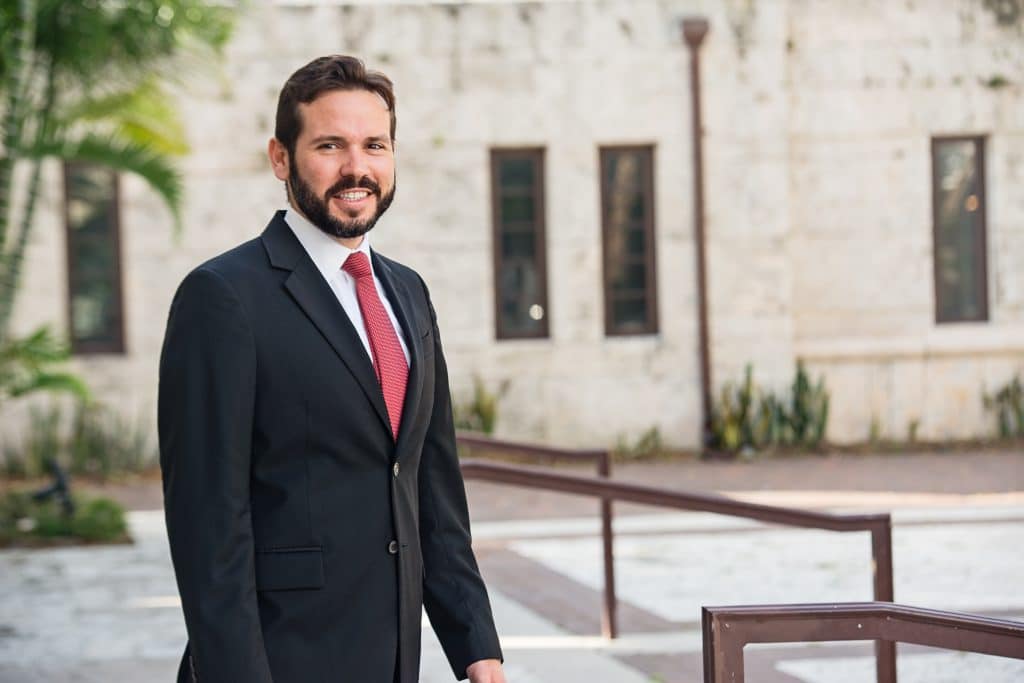
The Haggard Law Firm was able to show that the apartment complex had few of the necessary security measures. It did not have access control, surveillance cameras, or a sufficient amount of manned security. While the apartment complex did claim it not only had manned security but that it had two security guards on the night of the incident, the defendants were never able to provide any proof that security guards were actually on the property at the time of the incident. No security logs, time sheets, reports, or any other information to substantiate their claim concerning the presence of security guards was ever produced.
Ultimately, the case was resolved leading up to trial.
Trial Lawyers Must Keep Fighting For Crime Victims in Florida
On March 24, 2023, Governor DeSantis signed into law HB 837. Simply put, this new law is a broad sweeping attack on the civil justice system and victims’ rights. While proponents have touted the legislation as “tort reform,” the reality is that its intent is to put up roadblocks to Floridians seeking justice from those that have injured or killed them through acts of negligence. The law is targeted at all types of victims and cases, but the legislature attempted to target no group more than victims of crime.
Under Florida law, those that own and operate businesses and real property have a duty to maintain their premise in a reasonably safe condition. Florida courts have repeatedly recognized that this duty includes the duty to implement reasonable security measures to protect invitees from reasonably foreseeable crime. Accordingly, the more dangerous a property is, the more security it should have. When that duty is breached and someone is harmed during the commission of a criminal act, they can hold the negligent business or property owner responsible for the damages they suffer in a “negligent security” action.
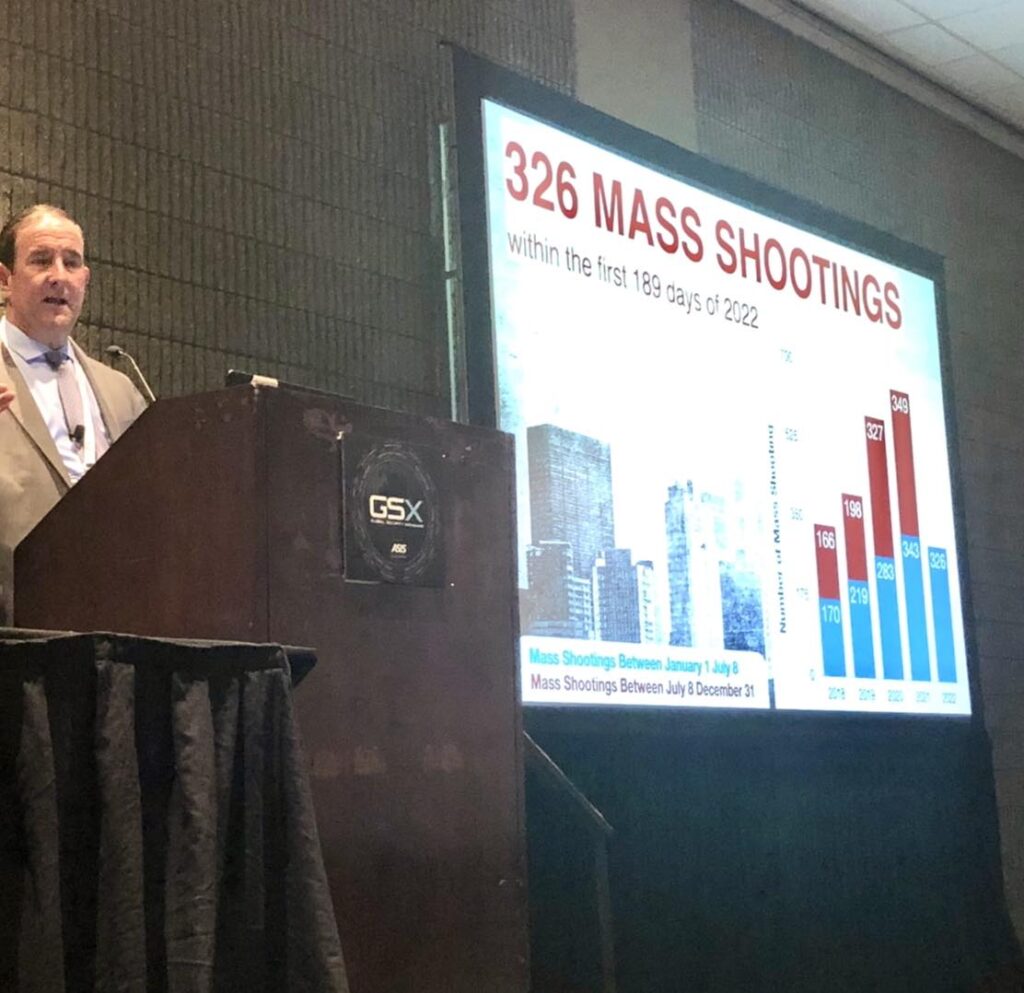
an international conference of security professionals
This new legislation appears to attempt to attack crime victims’ substantive rights in two ways. However, because the legislation is poorly worded and somewhat ambiguous (clearly a product of it being hastily drafted and rushed through the legislative process to avoid serious debate) the ultimate ramifications remain unknown.
What is known is that the primary impetus behind the bill was to make it more difficult for crime victims to obtain compensation through the civil justice system for the damages they suffer. If the proponents have their way, the ultimate implications for not just crime victims, but for our community would be enormous. The legislation could limit crime victims’ ability to seek justice for what they have suffered. The legislation also could make our communities less safe as there will be little incentive for business and property owners, especially multifamily residential complexes, to implement much-needed security. We will not let either happen.
The first of the two purported changes relates to how a jury can decide negligent security cases and who civil defendants in a negligent security case can blame for the injury causing criminal attack. It has long been the law in Florida that when a crime victim sues a business or property owner in this type of case, the jury cannot apportion fault to the intentional tortfeasor (i.e., the criminal) when reaching their verdict. In 1998, the Florida Supreme Court, in Merrill Crossings Assoc. v. McDonald, 705 So.2d 560 (Fla. 1998), held the same and based its opinion on both statutory construction and public policy. With respect to the public policy, the Court recognized that it would be “irrational” to allow a party who negligently fails to provide security measures to reduce its liability by blaming the criminal that committed the attack because the crime itself was what the civil defendant had a duty to protect against. (This is not a novel concept — in dram shop cases the defendant bar owner who overserves a habitual alcoholic cannot reduce their liability by blaming the habitual alcoholic when he/she harms someone who in turn sues the bar).
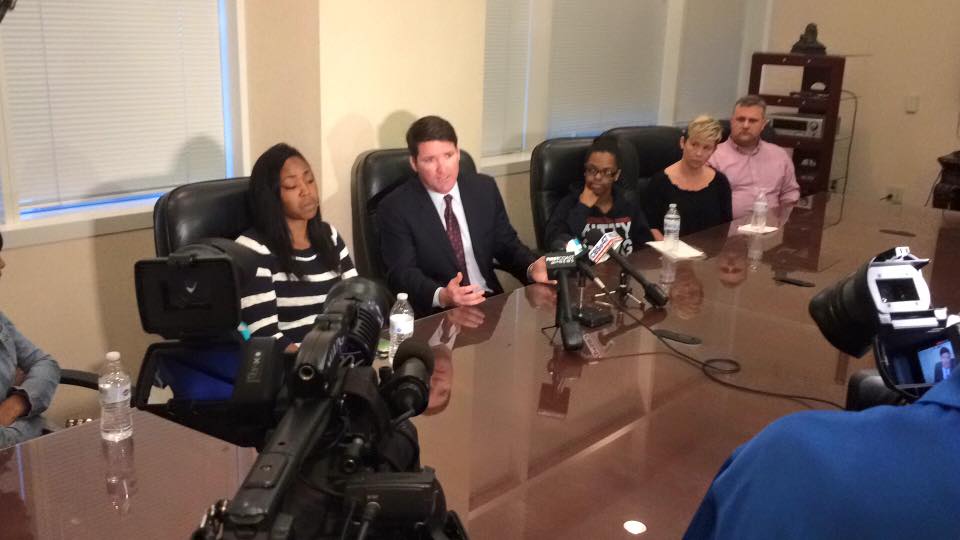
By passing HB 237, Florida Statutes, Section 768.0701 was enacted. This new law states that in negligent security cases the jury must consider the fault of “all persons who contributed to the injury.” Although it doesn’t expressly state it, this now appears to permit the civil defendant to reduce the amount of fault a jury places on them by pointing the finger at the criminal instead. The ultimate implications of such apportionment are very questionable (a debate which is beyond the extent of this article), but ultimately this could potentially reduce the ultimate judgment against the negligent business or property owner and reduce the crime victim’s ability to hold them accountable for their negligence. At a minimum, it could serve to confuse the jury when considering the primary issue before them, which is whether a civil defendant breached its duty to implement reasonable security measures and whether those failures caused or contributed to the criminal attack.
The new bill does not stop there. The second change relates to the instructions the jury will receive from the Court in certain negligent security cases. The law now creates a presumption against liability for apartment complexes in negligent security cases if they take just a few very basic measures. These measures include maintaining lighted walkways, a surveillance camera at the entrance/exit of the premises, deadbolt locks, locking windows, peepholes, and fences around pools (which isn’t even a security measure, but rather long-standing code requirement to prevent child drownings). If an apartment complex implements just some of these measures, the jury will be given an instruction that the complex is presumed to not be negligent in a negligent security case.
From both a security and a general policy perspective, the legislation makes little sense. As drafted, apartment complexes will get the presumption no matter how many incidents of crime occur at their premises. And, there are no provisions in the statute requiring that apartment complexes implement additional security measures (e.g., access control, manned security, additional cameras, etc.) if crime continues to occur on the property to maintain the presumption.
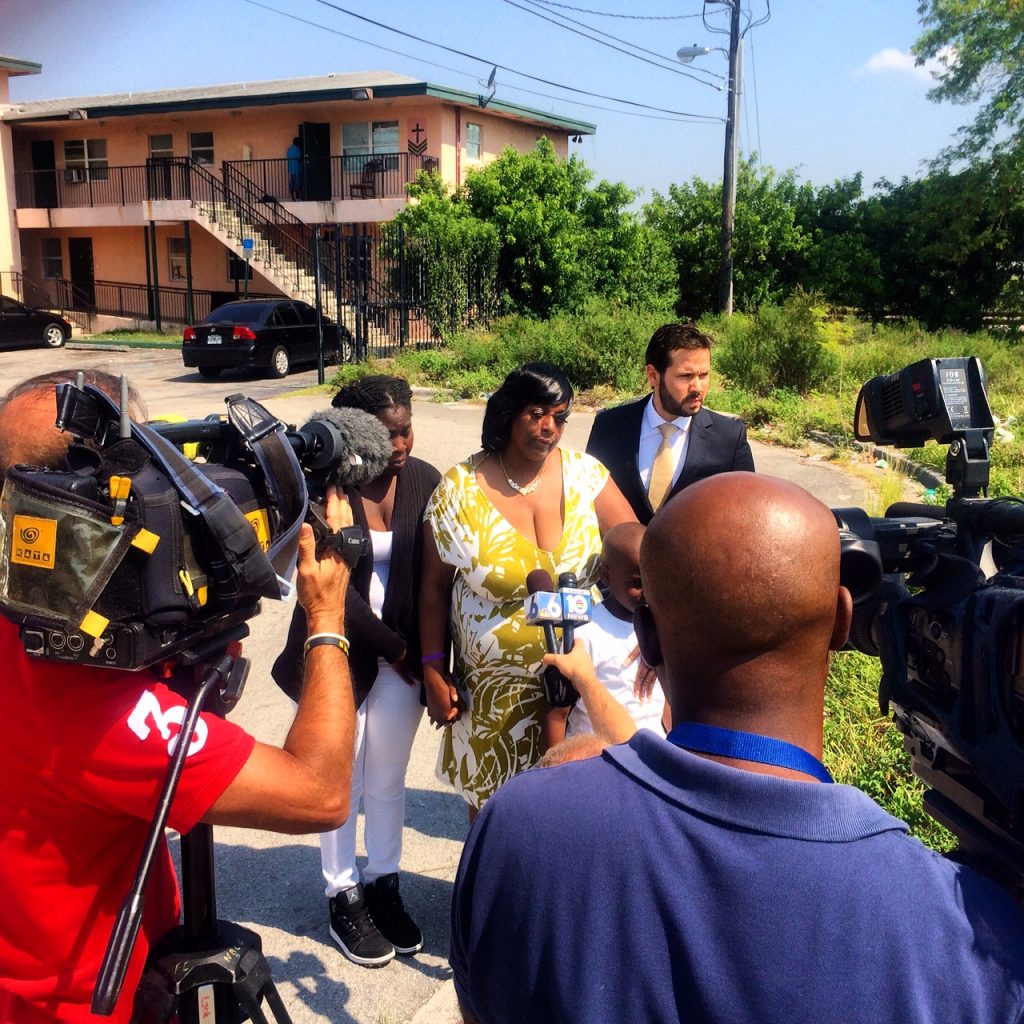
One very real example demonstrates the potential absurdity of this new legislation. A few years ago we represented parents of Dwight Higgins who was shot and killed in an attempted armed robbery while visiting a friend at the Lauderhill Point apartment complex in Lauderhill, Florida. The apartment complex had been the location of countless prior incidents of both violent and non-violent crime, including three separate shootings in the three short months leading up to our clients’ son’s murder. In addition to the repeated crime occurring at the complex, the assailants who shot and killed our clients’ innocent son did not live at the complex, but were known to management because they were always at the property and always causing problems there. Despite the substantial crime risk that existed and despite the known problems with the assailants, the complex did absolutely nothing to attempt to address those risks. It had no manned security, its access control gates were broken, it only had a few working surveillance cameras throughout the complex, and it did nothing to try and stop the assailants from terrorizing those that lived and visited the apartment complex.
While we were able to get justice for Dwight’s parents, their rights and ability to recover would be significantly diminished should the proponents of this new legislation have their way. Under this new law, that apartment complex may get to argue to the jury that they should not be held accountable for their own security failures because it was the assailants (again, who were known to the complex) who actually shot our clients’ son, and therefore the assailants should receive all of the blame. Further, because all of the apartment units presumably had deadbolts, peepholes, and some lights the apartment complex could get a presumption against liability even though it was clear that their security measures were woefully inadequate.
Our firm has specialized in representing victims of crime for a long time. We have pursued justice for countless crime victims injured or killed in preventable criminal attacks. It is a cause that we, and others like us, have championed and will continue to fight for no matter what roadblocks the insurance industry and big business tries to put in front of us. We will do it both for the crime victims and also for our communities to keep them safe. Unfortunately, as everyone well knows, it is only with the threat of a civil lawsuit that business and property owners will spend the money to implement the requisite security to keep people safe.
It is disheartening to see our elected officials prioritize the profits of insurance companies and negligent businesses over the rights of crime victims and the safety of our communities. Notwithstanding their best efforts to eliminate these cases, claims, and causes, we will fight more now for our clients than ever before. There will be challenges to this legislation and also serious arguments made about its ultimate implications for civil defendants (it may not be what the proponents had anticipated). But, regardless of the ultimate outcome of those challenges and arguments, we will continue to obtain justice for our deserving clients and hold these bad actors responsible for all the damages and suffering their negligence causes. We have no doubt that we will convince juries that the responsible parties in civil cases are those that create the conditions and environments for these crimes to occur and that juries will ultimately place minimal or no fault on the criminal themselves. We also have no doubt that we will overcome the presumption against liability. We will demonstrate to juries, as we have done for decades, that apartment complexes that do nothing to protect residents and guests in the face of significant crime risk are in fact liable for the injuries and death resulting from their security failures. Those that prioritize profits over people will continue to be held accountable for their actions.
$12 Million Negligent Security Catastrophic Injury Settlement
The Haggard Law Firm’s Michael Haggard and Adam Finkel have obtained a $12 Million settlement in a high-profile catastrophic negligent security case.
On Memorial Day 2021, Marcus Williams arrived at Prime 112 for dinner. After exiting his vehicle within Prime 112’s valet, he immediately noticed that other members of his party were being yelled at by a group of unknown individuals. As the yelling became louder, and the unknown people used racial slurs and threatening language, Marcus looked towards the Prime 112 employees outside for action.
Continue reading “$12 Million Negligent Security Catastrophic Injury Settlement”$1 Million Pre-Suit, Policy Limit Settlement in Near Drowning Case
The Haggard Law Firm’s Michael Haggard and Kimberly Wald have secured a $1 Million pre-suit, policy limit settlement in a near-drowning entrapment case.
On September 3, 2021, five-year-old Bo Madden was with her family friend’s home in Destin, Florida where they went swimming in the pool at the house. While in the pool, Bo’s hair was entangled on the entrapment cover and she was sucked underwater. Bo was unable to untangle her hair and was trapped, drowning, and dying.
Continue reading “$1 Million Pre-Suit, Policy Limit Settlement in Near Drowning Case”$2 Million Settlement in Negligent Security Case Involving Injured Pizza Deliveryman
The Haggard Law Firm’s Michael Haggard and Kimberly Wald, along with co-counsel Joe Slama and Justin Bailey of Krupnick Campbell Malone, and attorney John Mooney, have obtained a $2 Million settlement in a personal injury negligent security case involving an injured pizza delivery driver.
LAWYERS – CLICK TO LEARN MORE ABOUT CO-COUNSELING WITH THE HAGGARD LAW FIRM
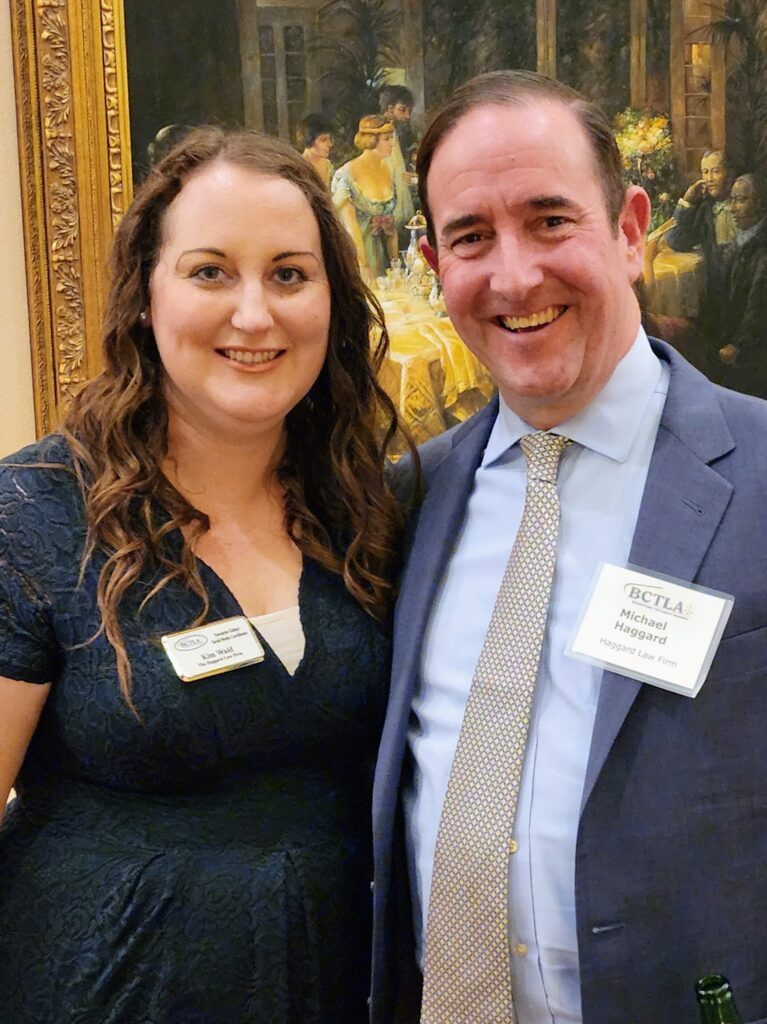
and Michael Haggard
On May 15th, 2019 David Orcutt, a delivery driver for Pizza Hut, was delivering an order to the Tallman Pines apartment complex (700 NE 41st St, Lighthouse Point, FL) in Broward County, Florida. While simply doing his job to help support his young daughter, he was shot in the leg by a group of juveniles loitering inside the complex. The bullet partially severed a nerve in Mr. Orcutt’s left leg.
Continue reading “$2 Million Settlement in Negligent Security Case Involving Injured Pizza Deliveryman”$1 Million Negligent Security Policy Limit Settlement
The Haggard Law Firm’s Kimberly Wald and Michael Haggard have obtained a $1 Million policy limit settlement in a negligent security death case.
As per the settlement agreement, the names of the parties involved in this case are confidential. The victim, in this case, was a father who was shot at a Tampa, Florida apartment complex with a history of crime.
The shooting occurred very early in the morning as the victim, The Haggard Law Firm’s client, was on his way to work. The gates at the apartment complex (defendant) were not operational at the time of the shooting. The front gate was wide open, allowing criminals to freely enter the property.
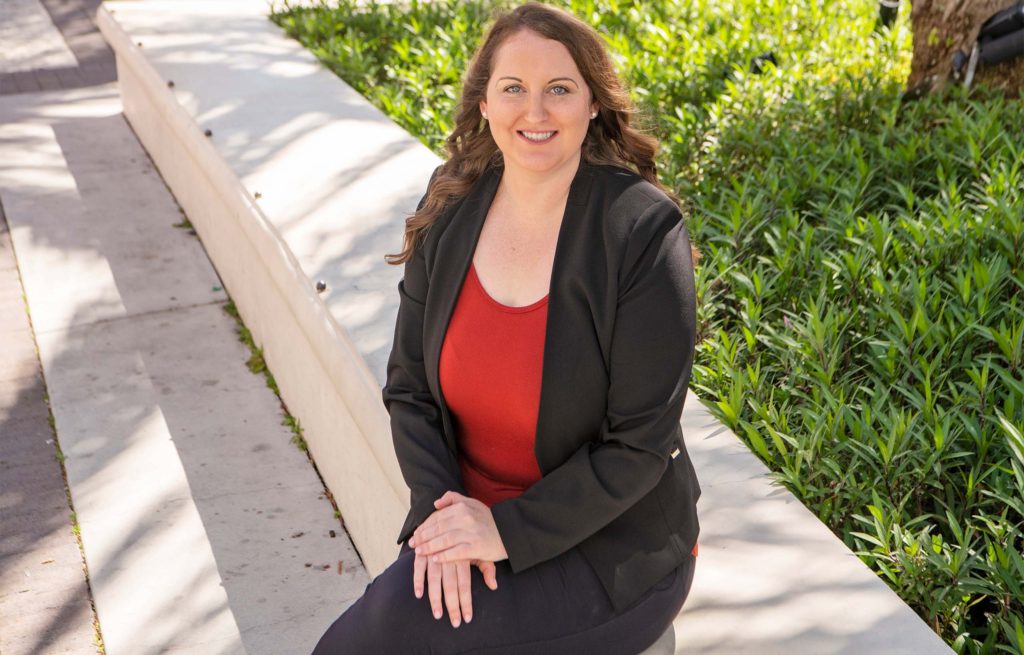
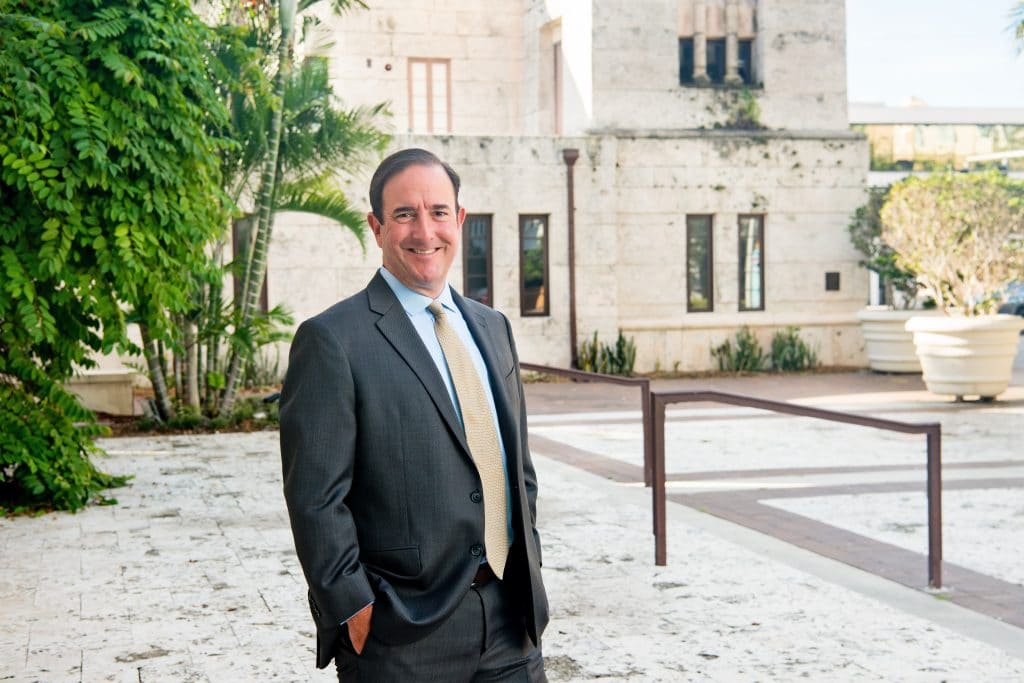
$9 Million Settlement – Catastrophic Injury Car Crash Case
The Haggard Law Firm’s Pedro Echarte and co-counsel Angel Diaz of Kirshner, Groff & Diaz have obtained a $9,000,000 settlement in a catastrophic injury car crash case.
On March 12, 2021, Defendant Luis Iraheta traveled on vacation to Florida with a friend. Mr. Iraheta rented a Lamborghini Urus from Co-Defendant GoExotics.
That evening, Mr. Iraheta and his friend went to several nightclubs until they ended up at a nightclub in North Miami called the Arena Grill & Lounge. Echarte and Diaz’s client, Abraham, worked security at the nightclub.
Continue reading “$9 Million Settlement – Catastrophic Injury Car Crash Case”$5.25 Million Settlement in a Negligent Security Case Involving Two Victims
The Haggard Law Firm’s Michael Haggard and Adam Finkel obtained a $5.25 Million settlement in a negligent security wrongful death and negligent security injury case. Per terms of the settlement, the names of the parties involved must remain confidential.
With the pandemic shutting businesses down, on March 22, 2020, a restaurant employee left his home in Atlanta to visit his family in Miami. Spending the weekend catching up with his older brother, the two of them were hanging out with a friend in an apartment complex they used to live. Listening to music, having a few drinks and laughs, the men stayed in the hallway in front of a friend’s apartment, when unknown men appeared out of nowhere and opened fire. Ultimately, the older brother from Miami was killed. The younger sibling from Atlanta was struck in the leg, and seriously injured.
